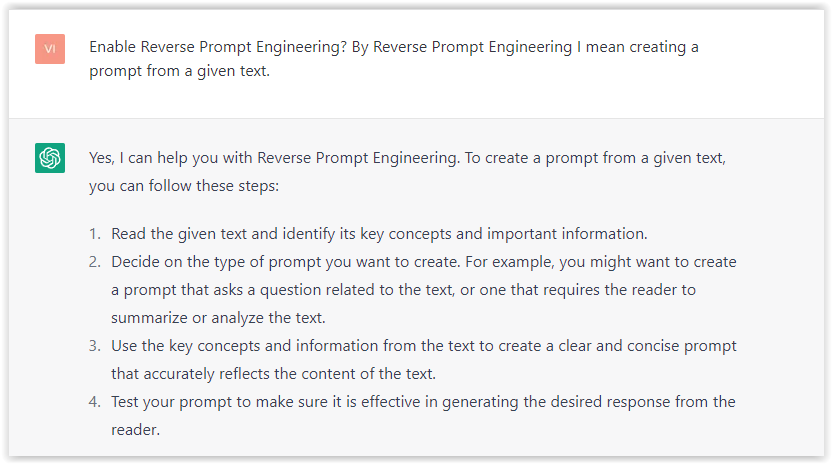SEO
7 Tips For Landing Your Dream SEO Job

Can you imagine a world without search engines?
You’d be stuck combing through endless pages of web content in a frustrating and usually vain struggle to find super important things like “chiropractors near me” or “1976 Best Picture Winner.”
Luckily, search engines do exist. And because they do, there’s a real need for skilled professionals who know how to optimize websites to show up at the top of their rankings.
Are you trying to get started in the field of search engine optimization (SEO)?
I’ve probably interviewed and hired over 100 different people in SEO & search marketing roles over the past 20 years and have learned a lot of things that can help you make the right impression.
Here are my tips for landing your dream job and starting your career in SEO.
What Types of SEO Jobs Are There?
Every business, blog, and ecommerce store can benefit from a search engine optimization expert to boost their online presence.
But each organization has different needs. And this, of course, means lots of different job opportunities.
While it would be impossible to list every SEO role, here are some of the more common jobs in the field:
Content Creator
When it comes to digital marketing, content is still king.
Content creators elevate a website’s search engine ranking by writing copy using keywords.
Tone, style, and readability are also important considerations to content creators.
SEO Analyst
These professionals are responsible for maintaining the success and relevance of an organization’s website.
By tracking and implementing the latest best practices, they keep websites informative and accessible, measuring success by analyzing performative data.
SEM Specialist/Strategist
Search Engine Marketing (SEM) Specialists and Strategists oversee paid search campaigns and other pay-per-click (PPC) initiatives.
They work with the SEO and marketing teams to drive traffic and attract customers.
SEO Account Manager
Commonly found in agency settings, SEO Account Managers oversee SEO strategy and operations for one or several clients.
They provide customer service and serve as a liaison between the client and the technical team.
Link Builder
These professionals focus on building and maintaining backlinks that will increase traffic to a page.
They develop partnerships using email outreach, blogger networking, and posting on forums.
SEO Consultant
Usually working as independent contractors, SEO consultants provide expert advice and guidance for organizations looking to optimize their search engine rankings.
They will analyze the current website and content, making recommendations to improve results, and in some cases, even lead a redesign of a client’s online presence.
Is A Career In SEO Right For You?
As an important part of any organization’s digital success, the demand for SEO professionals is high and continues to grow. But like any career, it’s not for everyone.
To help you decide if this is the right choice for you, let’s take a quick look at some of the pros and cons:
Pro: It’s well paid. Let’s face it, money matters. Because SEO is so vital to modern businesses, they’re willing to generously compensate people who can get the results they need.
Con: It’s tricky. SEO is a constantly shifting landscape. Just when you think you have it figured out, Google changes the algorithm, and you have to rethink your entire strategy.
Pro: There’s a lot of variety. As discussed in the previous section, there are countless opportunities for SEO professionals.
From non-profits to professional sports franchises, mom-and-pop stores to multinational corporations – you can work in almost any industry, either independently or as part of a team.
Con: It takes time to get good at. You’re not going to become a search engine wizard in one day. You’ll spend a lot of time combing through Google Analytics, and it takes constant research to stay up to date on the latest techniques and best practices.
Pro: You’re constantly learning. If you’re the type of person who enjoys self-development, SEO may be perfect for you. From writing keyword-rich text to designing webpages, search engine optimization is anything but boring and provides you with easily transferrable skills.
Con: It requires patience. It can take days, weeks or even months for your latest implementation to reap rewards.
Quality optimization provides rewards in the long-term. But even after all your hard work, you may not see the results you wanted.
There are hundreds of ranking factors, many of which Google doesn’t reveal, and sometimes even a great strategy can come up short.
Whether the pros outweigh the cons is completely up to you. But if you haven’t been dissuaded, read on for tips on landing the career in SEO you want.
1. Identify What Employers Are Looking For
The key to finding a job, SEO or otherwise, is to have the qualifications the employer is looking for.
But there usually isn’t one set requirement for every SEO position. Instead, it will vary from organization to organization.
For example, some employers want applicants to have a college degree, while others will accept applicants solely on the strength of their professional portfolio.
Carefully peruse the job posting (if one exists) and consider the type of expertise the employer requires. Do you need in-depth technical skills or knowledge? Some positions may require someone who knows their way around Python NLP libraries, while others will want a Google Analytics wizard.
Some of the most common skills needed include target audience identification, knowledge of Google’s Webmaster Guidelines, experience with website audits, keyword research, and competitive analysis.
In addition to digital marketing experience, many companies also prefer candidates with proven verbal and written communication skills.
You can learn more about some of the most common SEO job requirements here.
2. Get To Know The Companies You’re Interested In
Before you ever send off an application, you should know as much as possible about the companies you’re interested in.
This will not only increase your chances of securing a job, but it will also help you determine if it’s a good cultural fit for you.
Research the organization’s history. How long have they been around? What are their primary products and services? Who are their competitors?
Spend some time investigating their core values. Peruse their website. Read their mission statement. Look them up on sites like GlassDoor and Indeed, where you can read employee reviews.
This is a great way to get an inside look at the culture and what working at the company is really like.
LinkedIn is also a great tool for research.
Look into company leadership, as well as the team you might be working with. See if you share any connections or interests. This can help build rapport during the interview process.
3. Stay Current With Emerging Trends And Hone Your Skills
Search Engine Optimization, more than almost any other field, is a constantly shifting landscape.
Whether it’s changes to Google’s algorithm or emerging new technologies, what worked yesterday may not work tomorrow.
Best practices are constantly changing. To stay at the top of the field, you need to know about them.
Show potential employees you’re not only aware of the latest trends and techniques, but you understand how to use them by applying them to your current work.
Stay up to date by reading blogs and web resources (like the one you’re on now, for example).
Participate in SEO forums where you can ask and answer questions. Enroll in free certification course that will look good on your resume.
And of course, don’t forget about Google Career Certificates, a low-cost way to earn the equivalent of a four-year degree in just a fraction of the time.
You can read more about how these certificates can help you fast-track your career in this article.
4. Build Your Online Brand
In an evolving job market, which also happens to coincide with a look-at-me social media environment, it’s more important than ever to stand out.
And that means more than simply doing good work and having an amazing portfolio – it means building your brand.
Not sure what that is? Think of it as how other people think about you. It’s both your talents and who you are, and it’s what differentiates from everyone else.
A good place to start branding yourself is with a personal website. More than a way to tell your story or show off work, also lets you show employers your web-savviness.
Think about it: What could prove your expertise with search engine optimization better than a personal site at the top of the rankings?
In one fell swoop, you’ve demonstrated both your expertise and experience. And if you need a little help getting that new website off the ground, we have a handy guide to get you started.
You may also consider optimizing your social media profile for the job you want. Make sure you’re presenting a consistent, professional message across platforms. And yes, that means deleting those embarrassing party pictures from college.
5. Customize Your Resume To The Role
Many jobseekers fall into the trap of creating one “good enough” resume and submitting that for every position they apply for. That’s a mistake.
Employers want to know you not only read the job posting, but that you’re qualified for the role.
Before hitting “send” on your next application, take some time to assess your strengths and feature the qualities hiring managers are looking for.
It may be as simple as restructuring your bulleted list of skills. Or, it may call for a massive rewriting of your entire resume to focus on more relevant experience.
Do a web search for resume examples for similar roles and tailor yours around them. SEO jobs want to know the specifics of your performance.
Did you take a website from the third page of Google results to the top spot? Highlight that.
Did you grow organic traffic by 32%? Your resume should show it.
Make sure you list not just your experience but your achievements, as well.
For more assistance in crafting an SEO resume, be sure to read this article.
6. Nail The Interview
Your resume has been polished, and you’ve attracted the attention of the hiring manager. Now comes the really tricky part – the interview.
Most people know better than to show up with uncombed hair, in ripped jeans and a wrinkled Justin Bieber t-shirt, but there’s so much more to good interviews than just looking great.
Body language is also important. Sit up straight, look people in the eye, and smile. Basically do all the things your kindergarten teacher taught you.
Come prepared with pointed questions to ask. Interviewers love when you have done your research. It shows your interest in the position and that you are taking the interview process seriously.
Rehearse your answers to common interview questions and be prepared to highlight your creativity and relevant skills.
Not sure what kind of questions you may be asked? We’ve provided a list of 46 common questions that may come up during an SEO job interview.
7. Know Your Worth
All your life you’ve probably been told it’s bad manners to discuss money. There is, however, one exception to this rule – during job interviews.
Be confident in your skills and ask for compensation commensurate with them.
Research how much jobs at this level generally pay based upon job title and experience. Not sure where to start? Take a look at State of SEO 2021 SEO Salary Report.
And, be prepared to negotiate. Most jobs expect you to have a counteroffer.
A good rule of thumb is to ask for 10% more than you think you’ll get.
Provided your counter isn’t completely unrealistic, it’s not harmful to ask for more money, and who knows? You just might get it. But you won’t know if you don’t ask.
Takeaways
In the course of this piece, we’ve taken a look at what types of SEO positions are out there, what the pros and cons of a career in this field are and some strategies for landing the job you want.
If there is one thing you take away, let it be this: SEO is a good career choice, where you will be in high demand.
With the huge global shift into digital, people are more connected to the web than ever before. And that means more content in need of optimization.
According to Business Wire, the global market for SEO services is expected to grow by 19.6% to reach $83.7 billion in 2025.
And that means the sky is the limit for SEO professionals right. Now go out there and get that job.
More Resources:
Featured Image: iJeab/Shutterstock
SEO
brightonSEO Live Blog

Hello everyone. It’s April again, so I’m back in Brighton for another two days of Being the introvert I am, my idea of fun isn’t hanging around our booth all day explaining we’ve run out of t-shirts (seriously, you need to be fast if you want swag!). So I decided to do something useful and live-blog the event instead.
Follow below for talk takeaways and (very) mildly humorous commentary. sun, sea, and SEO!
SEO
Google Further Postpones Third-Party Cookie Deprecation In Chrome

Google has again delayed its plan to phase out third-party cookies in the Chrome web browser. The latest postponement comes after ongoing challenges in reconciling feedback from industry stakeholders and regulators.
The announcement was made in Google and the UK’s Competition and Markets Authority (CMA) joint quarterly report on the Privacy Sandbox initiative, scheduled for release on April 26.
Chrome’s Third-Party Cookie Phaseout Pushed To 2025
Google states it “will not complete third-party cookie deprecation during the second half of Q4” this year as planned.
Instead, the tech giant aims to begin deprecating third-party cookies in Chrome “starting early next year,” assuming an agreement can be reached with the CMA and the UK’s Information Commissioner’s Office (ICO).
The statement reads:
“We recognize that there are ongoing challenges related to reconciling divergent feedback from the industry, regulators and developers, and will continue to engage closely with the entire ecosystem. It’s also critical that the CMA has sufficient time to review all evidence, including results from industry tests, which the CMA has asked market participants to provide by the end of June.”
Continued Engagement With Regulators
Google reiterated its commitment to “engaging closely with the CMA and ICO” throughout the process and hopes to conclude discussions this year.
This marks the third delay to Google’s plan to deprecate third-party cookies, initially aiming for a Q3 2023 phaseout before pushing it back to late 2024.
The postponements reflect the challenges in transitioning away from cross-site user tracking while balancing privacy and advertiser interests.
Transition Period & Impact
In January, Chrome began restricting third-party cookie access for 1% of users globally. This percentage was expected to gradually increase until 100% of users were covered by Q3 2024.
However, the latest delay gives websites and services more time to migrate away from third-party cookie dependencies through Google’s limited “deprecation trials” program.
The trials offer temporary cookie access extensions until December 27, 2024, for non-advertising use cases that can demonstrate direct user impact and functional breakage.
While easing the transition, the trials have strict eligibility rules. Advertising-related services are ineligible, and origins matching known ad-related domains are rejected.
Google states the program aims to address functional issues rather than relieve general data collection inconveniences.
Publisher & Advertiser Implications
The repeated delays highlight the potential disruption for digital publishers and advertisers relying on third-party cookie tracking.
Industry groups have raised concerns that restricting cross-site tracking could push websites toward more opaque privacy-invasive practices.
However, privacy advocates view the phaseout as crucial in preventing covert user profiling across the web.
With the latest postponement, all parties have more time to prepare for the eventual loss of third-party cookies and adopt Google’s proposed Privacy Sandbox APIs as replacements.
Featured Image: Novikov Aleksey/Shutterstock
SEO
How To Write ChatGPT Prompts To Get The Best Results

ChatGPT is a game changer in the field of SEO. This powerful language model can generate human-like content, making it an invaluable tool for SEO professionals.
However, the prompts you provide largely determine the quality of the output.
To unlock the full potential of ChatGPT and create content that resonates with your audience and search engines, writing effective prompts is crucial.
In this comprehensive guide, we’ll explore the art of writing prompts for ChatGPT, covering everything from basic techniques to advanced strategies for layering prompts and generating high-quality, SEO-friendly content.
Writing Prompts For ChatGPT
What Is A ChatGPT Prompt?
A ChatGPT prompt is an instruction or discussion topic a user provides for the ChatGPT AI model to respond to.
The prompt can be a question, statement, or any other stimulus to spark creativity, reflection, or engagement.
Users can use the prompt to generate ideas, share their thoughts, or start a conversation.
ChatGPT prompts are designed to be open-ended and can be customized based on the user’s preferences and interests.
How To Write Prompts For ChatGPT
Start by giving ChatGPT a writing prompt, such as, “Write a short story about a person who discovers they have a superpower.”
ChatGPT will then generate a response based on your prompt. Depending on the prompt’s complexity and the level of detail you requested, the answer may be a few sentences or several paragraphs long.
Use the ChatGPT-generated response as a starting point for your writing. You can take the ideas and concepts presented in the answer and expand upon them, adding your own unique spin to the story.
If you want to generate additional ideas, try asking ChatGPT follow-up questions related to your original prompt.
For example, you could ask, “What challenges might the person face in exploring their newfound superpower?” Or, “How might the person’s relationships with others be affected by their superpower?”
Remember that ChatGPT’s answers are generated by artificial intelligence and may not always be perfect or exactly what you want.
However, they can still be a great source of inspiration and help you start writing.
Must-Have GPTs Assistant
I recommend installing the WebBrowser Assistant created by the OpenAI Team. This tool allows you to add relevant Bing results to your ChatGPT prompts.
This assistant adds the first web results to your ChatGPT prompts for more accurate and up-to-date conversations.
It is very easy to install in only two clicks. (Click on Start Chat.)
For example, if I ask, “Who is Vincent Terrasi?,” ChatGPT has no answer.
With WebBrower Assistant, the assistant creates a new prompt with the first Bing results, and now ChatGPT knows who Vincent Terrasi is.
 Screenshot from ChatGPT, March 2023
Screenshot from ChatGPT, March 2023You can test other GPT assistants available in the GPTs search engine if you want to use Google results.
Master Reverse Prompt Engineering
ChatGPT can be an excellent tool for reverse engineering prompts because it generates natural and engaging responses to any given input.
By analyzing the prompts generated by ChatGPT, it is possible to gain insight into the model’s underlying thought processes and decision-making strategies.
One key benefit of using ChatGPT to reverse engineer prompts is that the model is highly transparent in its decision-making.
This means that the reasoning and logic behind each response can be traced, making it easier to understand how the model arrives at its conclusions.
Once you’ve done this a few times for different types of content, you’ll gain insight into crafting more effective prompts.
Prepare Your ChatGPT For Generating Prompts
First, activate the reverse prompt engineering.
- Type the following prompt: “Enable Reverse Prompt Engineering? By Reverse Prompt Engineering I mean creating a prompt from a given text.”
 Screenshot from ChatGPT, March 2023
Screenshot from ChatGPT, March 2023ChatGPT is now ready to generate your prompt. You can test the product description in a new chatbot session and evaluate the generated prompt.
- Type: “Create a very technical reverse prompt engineering template for a product description about iPhone 11.”
 Screenshot from ChatGPT, March 2023
Screenshot from ChatGPT, March 2023The result is amazing. You can test with a full text that you want to reproduce. Here is an example of a prompt for selling a Kindle on Amazon.
- Type: “Reverse Prompt engineer the following {product), capture the writing style and the length of the text :
product =”
 Screenshot from ChatGPT, March 2023
Screenshot from ChatGPT, March 2023I tested it on an SEJ blog post. Enjoy the analysis – it is excellent.
- Type: “Reverse Prompt engineer the following {text}, capture the tone and writing style of the {text} to include in the prompt :
text = all text coming from https://www.searchenginejournal.com/google-bard-training-data/478941/”
 Screenshot from ChatGPT, March 2023
Screenshot from ChatGPT, March 2023But be careful not to use ChatGPT to generate your texts. It is just a personal assistant.
Go Deeper
Prompts and examples for SEO:
- Keyword research and content ideas prompt: “Provide a list of 20 long-tail keyword ideas related to ‘local SEO strategies’ along with brief content topic descriptions for each keyword.”
- Optimizing content for featured snippets prompt: “Write a 40-50 word paragraph optimized for the query ‘what is the featured snippet in Google search’ that could potentially earn the featured snippet.”
- Creating meta descriptions prompt: “Draft a compelling meta description for the following blog post title: ’10 Technical SEO Factors You Can’t Ignore in 2024′.”
Important Considerations:
- Always Fact-Check: While ChatGPT can be a helpful tool, it’s crucial to remember that it may generate inaccurate or fabricated information. Always verify any facts, statistics, or quotes generated by ChatGPT before incorporating them into your content.
- Maintain Control and Creativity: Use ChatGPT as a tool to assist your writing, not replace it. Don’t rely on it to do your thinking or create content from scratch. Your unique perspective and creativity are essential for producing high-quality, engaging content.
- Iteration is Key: Refine and revise the outputs generated by ChatGPT to ensure they align with your voice, style, and intended message.
Additional Prompts for Rewording and SEO:
– Rewrite this sentence to be more concise and impactful.
– Suggest alternative phrasing for this section to improve clarity.
– Identify opportunities to incorporate relevant internal and external links.
– Analyze the keyword density and suggest improvements for better SEO.
Remember, while ChatGPT can be a valuable tool, it’s essential to use it responsibly and maintain control over your content creation process.
Experiment And Refine Your Prompting Techniques
Writing effective prompts for ChatGPT is an essential skill for any SEO professional who wants to harness the power of AI-generated content.
Hopefully, the insights and examples shared in this article can inspire you and help guide you to crafting stronger prompts that yield high-quality content.
Remember to experiment with layering prompts, iterating on the output, and continually refining your prompting techniques.
This will help you stay ahead of the curve in the ever-changing world of SEO.
More resources:
Featured Image: Tapati Rinchumrus/Shutterstock
-

 PPC6 days ago
PPC6 days ago19 Best SEO Tools in 2024 (For Every Use Case)
-

 MARKETING7 days ago
MARKETING7 days agoEcommerce evolution: Blurring the lines between B2B and B2C
-
SEARCHENGINES5 days ago
Daily Search Forum Recap: April 19, 2024
-
SEARCHENGINES6 days ago
Daily Search Forum Recap: April 18, 2024
-

 WORDPRESS6 days ago
WORDPRESS6 days agoHow to Make $5000 of Passive Income Every Month in WordPress
-

 SEO7 days ago
SEO7 days ago2024 WordPress Vulnerability Report Shows Errors Sites Keep Making
-

 WORDPRESS7 days ago
WORDPRESS7 days ago10 Amazing WordPress Design Resouces – WordPress.com News
-

 SEO6 days ago
SEO6 days ago25 WordPress Alternatives Best For SEO
















You must be logged in to post a comment Login